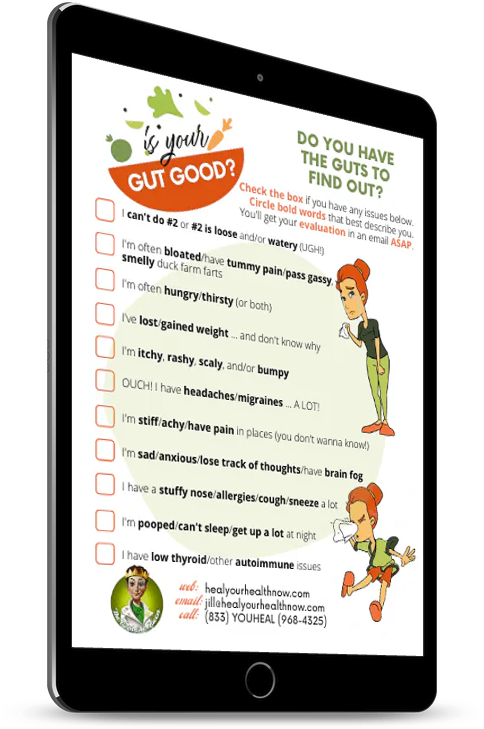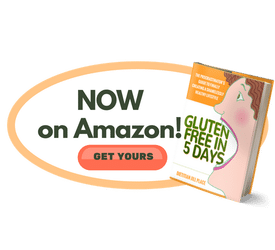What Doctors Don’t Know Will (Eventually) Hurt Them
One Halloween, I dressed my then genius boyfriend, a renowned high-temperature chemist who had synthesized emeralds in his laboratory before he was 30 and rediscovered the iridescent process of Tiffany glass (evidently the guy who figured it out in the first place died and took it with him), as a mad scientist. I teased his hair and ripped and bloodied his lab coat. Normally kind of shy and cumbersome with people, he became the live-wire of every party with this fake persona. When he was actually the real deal.
I thought of him when I read the article, “How to Counter the Circus of Pseudoscience”, by M.D. Lisa Pryor (she doesn’t reveal that she’s a physician in her byline … you have to click twice to get her bio and then read past the first sentence to find out). She does kind of reveal that she’s a doctor halfway down the article, quite humbly explaining that a doctor’s journey with a patient is built upon doubt (that’s true … the whole practice of allopathic medicine is based upon the practice of “ruling-out” … doing tests and seeing if signs, symptoms, and other empirical data fit a certain diagnosis or not).
She goes on to say that well-practiced doctors are humbled and aware of the limits of their knowledge, which has not always been my experience … and I work with doctors daily. And also explains that evidenced-based health care (which is what I practice along with many other alternative practitioners like me) “changes as new evidence emerges”, which is definitely true (for example, alternative practitioners knew about the value of testing for Vitamin D deficiency more than 20 years ago … now it is de rigueur for MDs … I see results in almost every chart I review).
And I was humbled when she talked about the fact “that is also the case for other health professionals whose practice is based on science, like qualified dietitians … (she named us first before other licensed health care practitioners!)” But then Pryor goes on to say, “In the face of such doubt, it is not surprising that some individuals, even those who are intelligent and well educated, are swept away by the breezy confidence of health gurus, who are full of passionate intensity while the qualified lack all conviction, to borrow from Yeats”. And then continues …
This may explain how an Australian celebrity chef named Pete Evans cannot only promote the health benefits of a Paleo diet but also feel knowledgeable enough to make pronouncements on fluoride, sunscreen and vaccinations. He responded to criticisms in a television interview by saying: ‘What do you need a qualification for? To talk common sense?’ He added, ‘Why do you have to study something that is outdated, that is industry backed, that is biased, that is not getting the results?’
Engaging is difficult when the alternative-health proponents are on such a different astral plane that it is a challenge even to find common language for a conversation, especially when they promote spurious concepts such as ‘pyrrole disease,’ which they can speak about in great, false detail, drawing the well-informed physician, dietitian (I love that she puts again the dietitian next to the MD) or scientist into a vortex of personal anecdote and ancient wisdom, with quips about big pharma thrown in for good measure …
Countering the online health gurus is especially difficult when they offer the irresistible cocktail of medical language muddled with a much more pleasing aesthetic than medicine, far from the clinical world of linoleum and antiseptic, a better place where patients’ conditions are diagnosed with metaphors (‘adrenal fatigue’) and treated with poetry (holy basil, bone broth, Himalayan sea salt).
I must say … even though it’s obvious that she holds dietitians in high esteem … that I have difficulty with Pryor’s black-white thinking. Because there are many shades of gray between physicians and her definition of charlatans. First, I must say that I, too, am not fond of many of the alternative practitioners out there today that have conquered media hype and promote themselves to the masses as, like the celebrity chef Pryor talks about, experts on everything from vaccinations to sliced bread. I shun those myself.
To become a “qualified dietitian”, I have completed a rigorous science discipline (including 5 chemistry courses … mind-boggling for a former master’s-degreed arts person) as well as a lifelong study of many nutrition philosophies encompassing everything from Traditional Nutrition Therapy to Natural Hygiene to Functional Medicine. Pryor fails to mention that Functional Medicine, coined by real-deal scientific “guru”, Jeffrey Bland, is definitely evidenced-based but looks at the same scientific studies that doctors do in a different mindset … one that seeks to correct dysfunction (including the psychological and spiritual) before it turns into disease.
I wonder what Pryor would think of that philosophy … one that is considered as downright balderdash by many MDs. Because it doesn’t espouse to the traditional have symptoms … take a pill … get a treatment de rigueur. Functional Medicine is the philosophy that I adhere to and … as a “qualified dietitian” … it works swimmingly for my clients who wish to embrace it (not all do but that is their right). And I’ve also worked on the wrong side of the licensed experts swimming with “alternative-health” sharks long enough to know that you don’t have to be licensed to have a lot of the “right” answers. In other words, I often feel like the mad scientist that’s also the real deal.
I’m concerned by Pryor … concerned that … even though she mouths the word “humility”, she talks about things being “right” as if she is the great looming-overhead omnipotent authority that is meting justice upon all of us who are “wrong”. Even though she feigns humility, she sounds like the doctors she condemns as being “commanding and authoritarian, even arrogant”. When you narrow your vision that much, perhaps just taking double-blind placebo-controlled research as “evidence” you tend to miss valid evidence-based “alternatives” that are right in front of your nose. Like the thousands and thousands of patients who have affirmed that food sensitivity testing and diet “changed their lives”, including one with Multiple Sclerosis that I mentioned in a recent article who was doomed by doctors to lose her mobility only to state, soon after she avoided her sensitive foods, that she had no further symptoms.
And what of those who have had “evidence-based” medical care only to be told by doctors that there was nothing else that they could do for them … what of those? Especially those with Irritable Bowel Syndrome (IBS), the core problem of which is easily treatable by avoiding one’s sensitive foods along with targeted nutritional supplements if needed. When the many, many medications for IBS have mixed results at best and debilitating side effects at worst. And, like most allopathic treatments, only deal with alleviating the surface symptoms. Also, the reality is that many MDs don’t even believe that diet can have a huge impact upon health, even though there are many “evidence-based” studies that affirm it.
I do agree, however, that, as Pryor says, “ … we must also as a profession engage in the public conversations about health, including on social media, along with our colleagues in allied health fields. If we do not, the discussion will be dominated by the passionately uninformed, who build trust only to sell false cures. And we must listen to patients, as we are taught to do, showing care and understanding. We must take on the difficult challenge of inspiring and motivating with the truth.” I do agree, but so far the discussion has been dominated by doctors, who think they’re the only ones who hold high the beacon of truth and everyone else is “passionately uninformed”. I do agree, if the truth allows such philosophies as also-evidence-based Functional Medicine. And I do agree if listening to patients includes the 86% who are talking nutritional supplements and herbs as adjunct cancer therapies, especially the two-thirds of those who are afraid to tell their heavily treatment-biased doctors about them.
Leave Your Comments About The Facts and Foibles of “Pseudoscience” Below
Do you think that doctors are the only ones who can treat people’s ills? What your experience with medical treatment? Have you tried alternative treatments? What was yur experience with them?


Leave a Reply